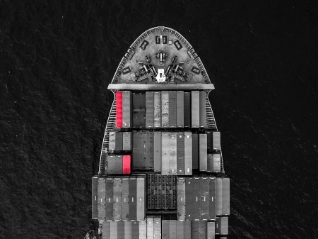
Ultime notizie e approfondimenti

Rapporti e pubblicazioni dei nostri esperti di settore

Guide utili a portata di mano

Esempi di buone pratiche di gestione del credito in vari settori e mercati

Storie di successo dei nostri clienti
This year, Atradius celebrates a remarkable milestone: a century of operations in the Netherlands.


Le tariffe e i...

Grazie a questa partnership, i nostri clienti in Spagna possono diventare venditori sul marketplace B2B di Alibaba.com senza pagare la quota di iscrizione

L’Europa vive una nuova stagione...

Le tensioni commerciali, gli investimenti nell'intelligenza artificiale e i cambiamenti geopolitici dominano...

L'ultima minaccia tariffaria del presidente degli Stati Uniti mette in luce l'interdipendenza...

Con la nomina di Tiziana Camisa alla direzione di Global Italy, si rafforza la struttura italiana di Atradius
Visualizzazione 7 fuori da 62
La crescita del settore rallenta mentre il commercio globale frena


Il partito GNU sudafricano riuscirà a superare le tensioni e le sfide strutturali per sbloccare la crescita del PIL?

I dazi statunitensi, la geopolitica e il calo della domanda provocano una contrazione della produzione automobilistica...

Tarif...

Le aziende farmaceutiche di tutto il mondo stanno rivedendo le loro strategie operative e...

La crescita della produzione chimica dovrebbe rallentare nel 2025/2026 a causa dei dazi statunitensi

Le tensioni commerciali provocano un aumento dei casi di insolvenza
Visualizzazione 7 fuori da 75
Comprendere perché l'assicurazione del credito offre una copertura più ampia, una gestione strategica del rischio e...


Come gli assicuratori del credito valutano il rischio e determinano i limiti di credito appropriati

Scopri come funzionano le fideiussioni e le garanzie bancarie, le loro somiglianze e differenze e cosa...

Esplorate i punti di forza e di debolezza dell'assicurazione del credito e...

La globalizzazione rende inevitabile l'espansione dei mercati, ma l'ingresso in nuovi...

L...

Visualizzazione 7 fuori da 31
Every customer is a...


Atradius Surety has enabled Vinci Construction France to expand their sources of finance beyond their banking...


With the backing of Atradius’s resources, EnCom Polymers has been able to expand business with existing customers and go...

BVV GmbH grew internationally and recognised risks such as companies on the brink of insolvency in plenty of time to mitigate the...

Visualizzazione 7 fuori da 11
Omron has achieved sustainable growth while navigating the uncertainties of China-US trade relations and regional manufacturing transformation.


FERM (International) offers competitive payment terms and limits their credit risk to developing countries by using Atradius Dutch State Business (DSB) and...

El Ganso credits our support in helping the fashion brand grow from a domestic-focused Spanish startup to a successful international business.

By providing open dialogue, insight and valuable credit information we helped Brook Green Supply improve their internal credit...

Late payers prompted content marketing agency KMOdynamoo to take out an Atradius credit insurance policy and has resulted in better debtor management.

Our agility and local knowledge of worldwide markets and buyers are key reasons why textiles business Georg Jensen Damask say they collaborate...

Janson Bridging (International) uses export credit insurance from Atradius Dutch State Business (DSB) to offer favourable credit terms to customers...
Visualizzazione 7 fuori da 10
































